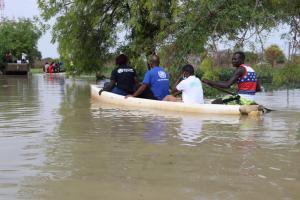Amidst the floods, WHO supports the Ministry of Health in building resilience and saving lives: Lessons from Jonglei State of South Sudan
Context
In South Sudan, recurrent severe flooding driven by heavy rains from May to October devastates communities annually. These natural disasters displace thousands, increase the risk of waterborne and vector-borne diseases, and damage critical infrastructure, including crops, homes, healthcare facilities, and transportation routes. Particularly vulnerable are the regions of Greater Bahr el Ghazal and Upper Nile. The effects of climate change are anticipated to exacerbate these challenges, with predictions of higher water levels in the White Nile due to increased rainfall in the Nile Basin.
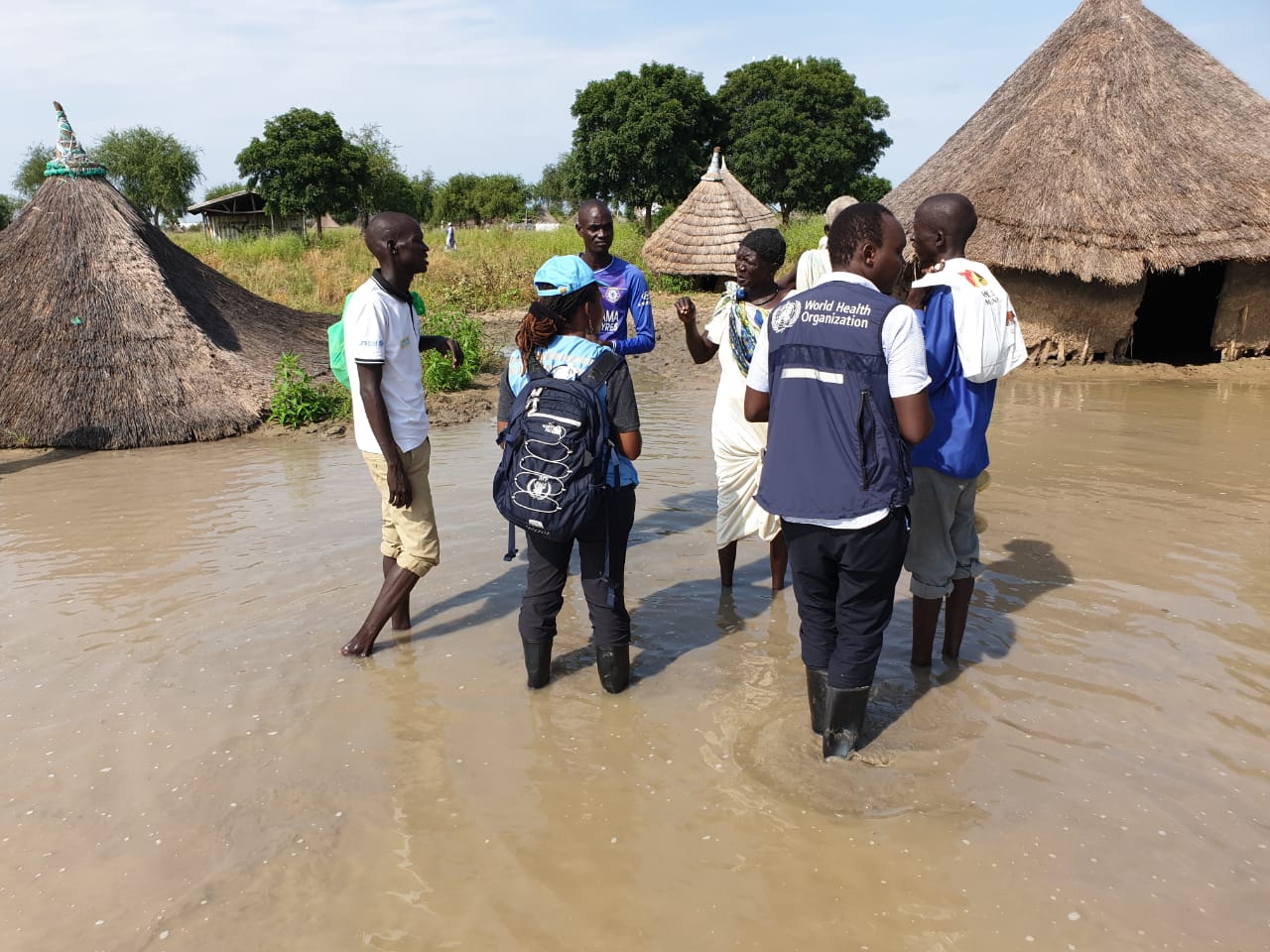
Action taken by the country with the support of WHO and other partners
To combat the recurring floods and their impact on public health, the National Ministry of Health, supported by WHO and other partners, has launched a comprehensive response. Efforts include the deployment of rapid response teams across affected areas and the establishment of the Integrated Disease Surveillance and Response (IDSR) system where 43107 alerts were reported, of which 30199 alerts have been quickly verified and investigated since 2019.
Funded by international donors, WHO has distributed over 3366 emergency health kits in the last five years, benefiting 1.5 million individuals affected by floods. As part of our ongoing preparations for anticipated flooding, WHO is strategically prepositioning 609 Emergency Health kits in flood-prone areas, including Bentiu, Malakal, and Bor. These kits are projected to benefit 287 000 people in these vulnerable regions.
In the last four years, WHO and its partners have provided healthcare services to 1.6 million individuals, showcasing the impact of their ongoing efforts.
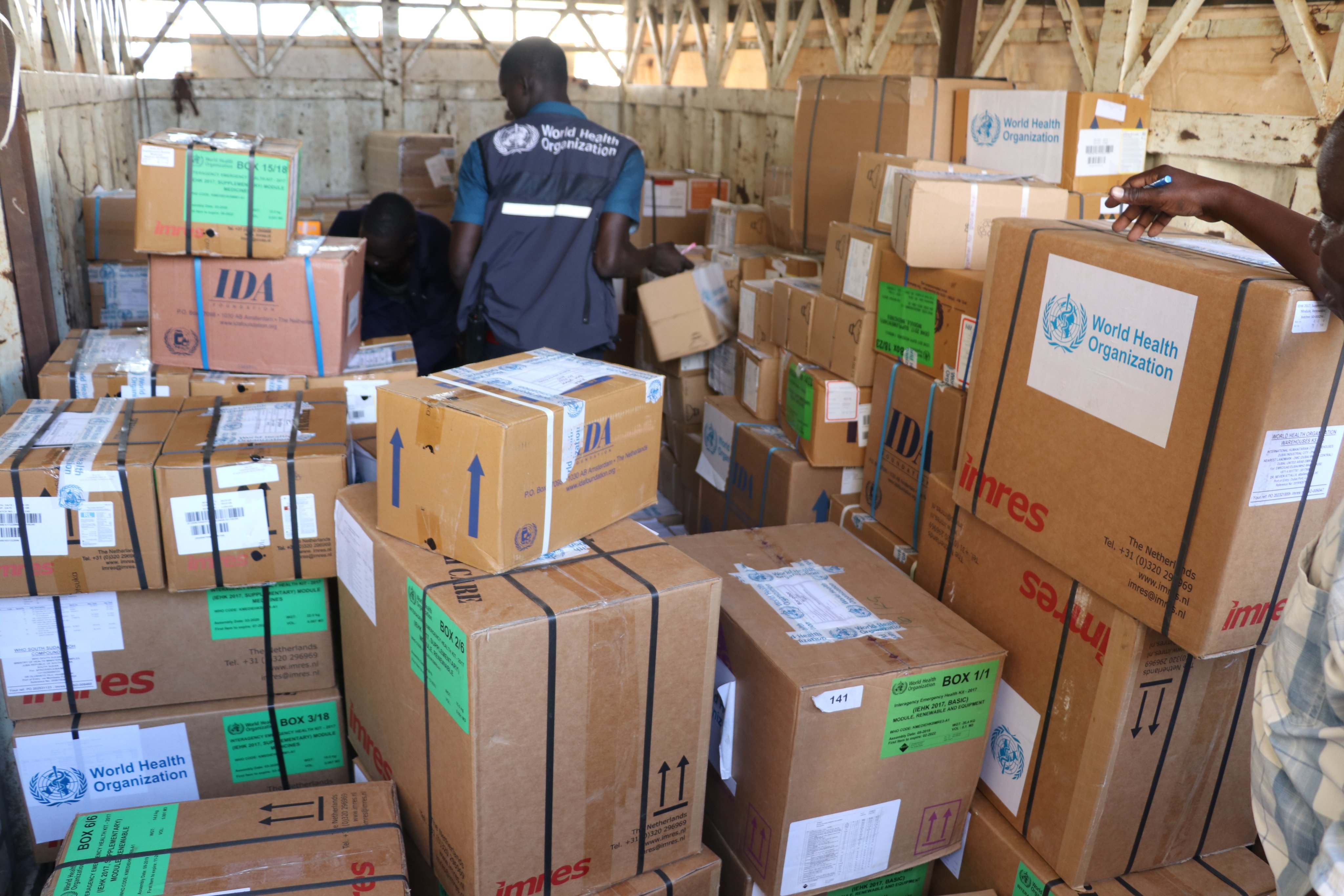
Local Impact in Jonglei State
“In Jonglei flood-prone counties, flood preparedness and response plans have safeguarded the health of the communities and made them more resilient to other natural disasters," said Mr Chot Kueth Kulang, Director General of the State Ministry of Health in Jonglei State.
The proactive flood preparedness and response strategies have significantly mitigated health risks. These initiatives included rehabilitating and maintaining dikes, relocating residents from flood-prone areas and targeted health interventions to combat water—and vector-borne diseases and snakebites.
“WHO supported Bor State Hospital by providing fuel to run our hospital ambulance and its generator, and essential medical supplies, technical guidance, and capacity building to respond to flood emergencies, including disease outbreaks like measles, COVID-19, and cholera. This support has enabled us to save more lives and avoid many deaths, particularly among mothers and young children,” said Dr Bol Chaw, medical director of Bor State Hospital.
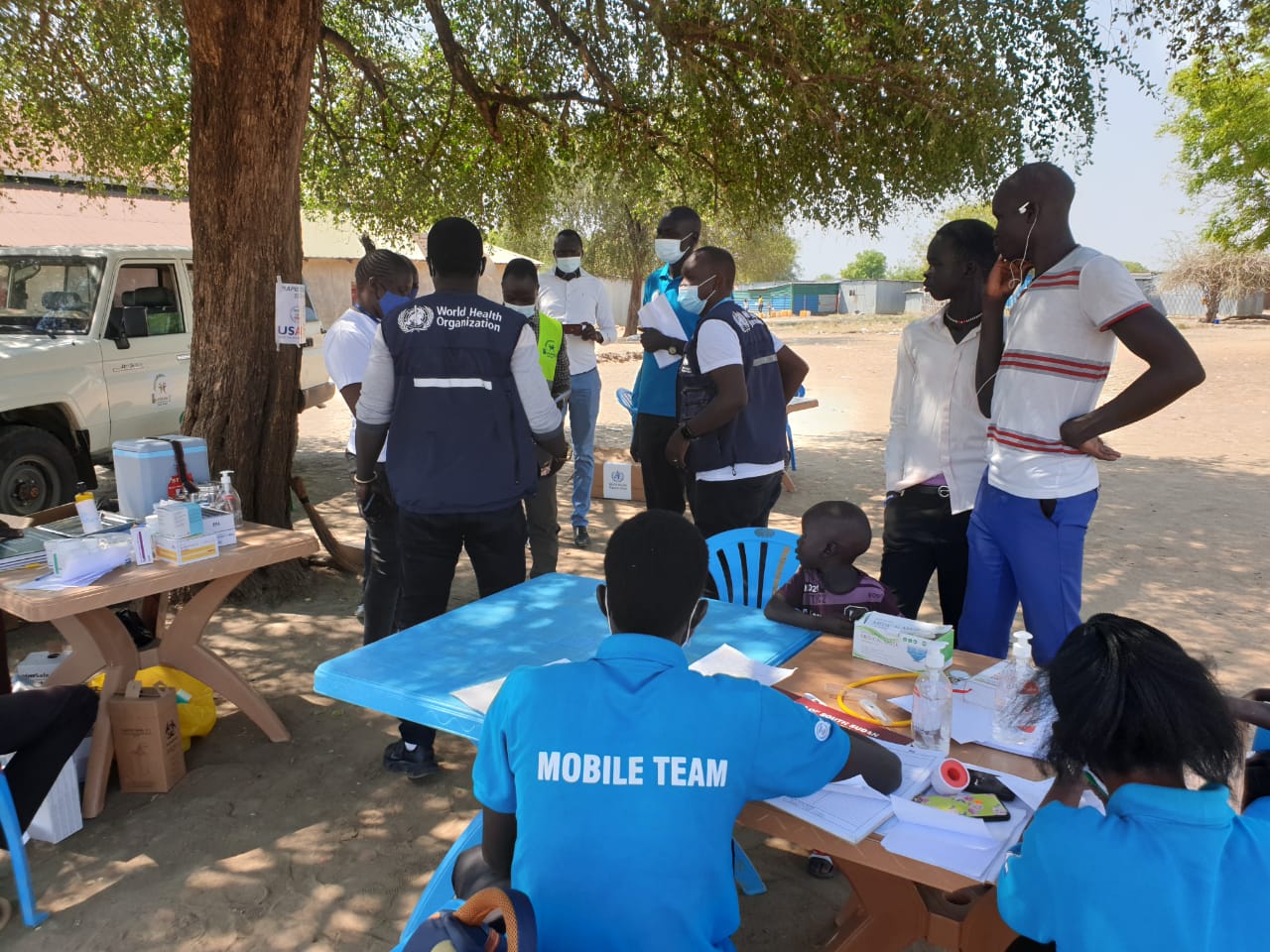
Results in Jonglei State
The collaborative efforts have greatly improved disease surveillance and emergency response capabilities in Jonglei State. “WHO's support has been instrumental in scaling up vaccination drives, delivering essential medical supplies, and strengthening local healthcare capacities. This comprehensive support has preserved lives, particularly vulnerable populations like mothers and children, by ensuring sustained operation of critical healthcare services during floods”, said Mr Kulang.
“WHO’s support has been crucial,” added Dr Humphrey Karamagi, WHO Representative to South Sudan. “We provide not just immediate medical aid but also life-saving interventions, essential supplies, and training for local health workers. This ensures the health system is reactive and proactive, building resilience against future floods.”
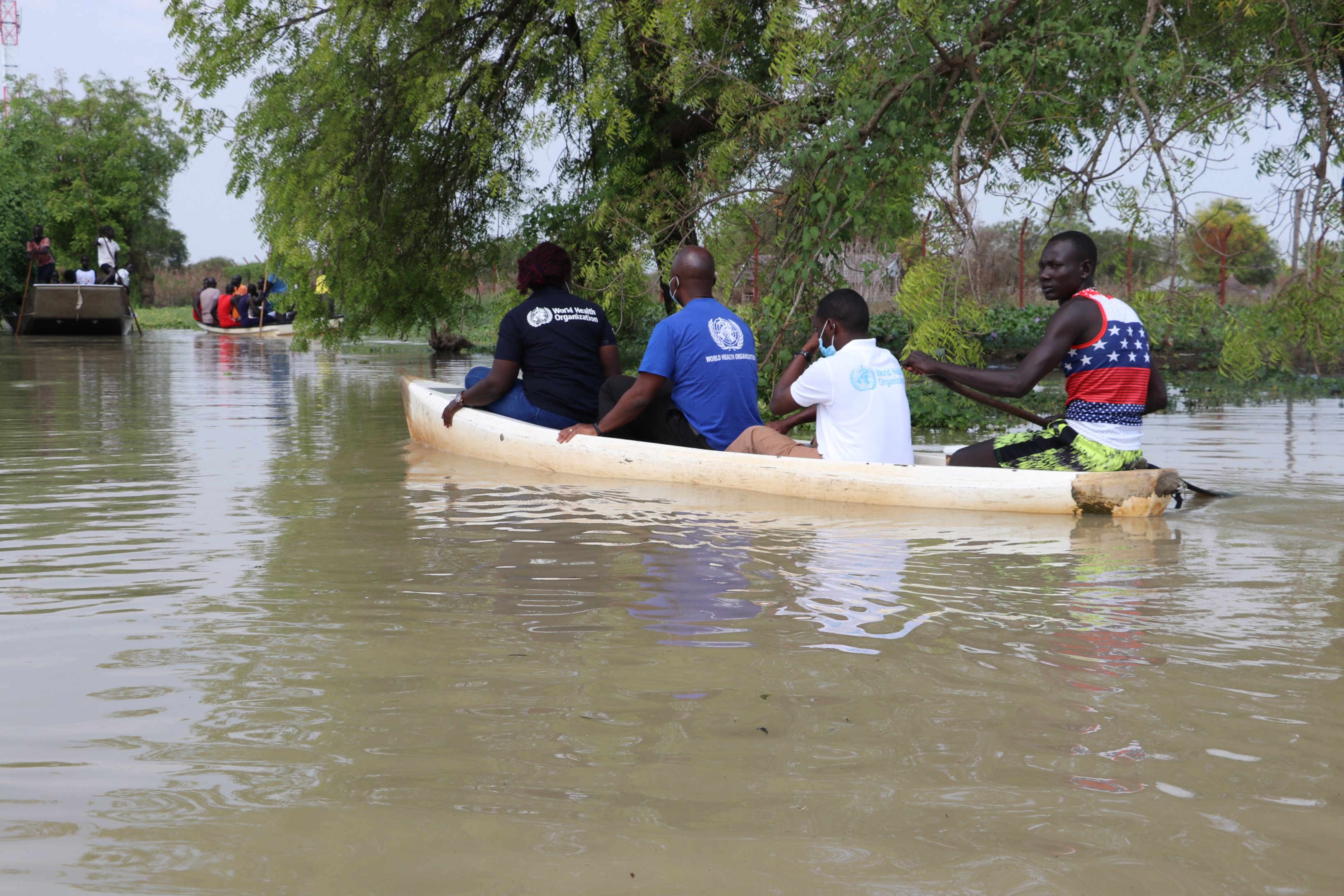
Lessons learned or priority action going forward
Post-event evaluations underscore the necessity of integrating flood risk mitigation within the national disaster risk reduction agenda. Future priorities will focus on enhancing the resilience of governmental and healthcare infrastructures, optimizing resource allocation, and improving coordination among all stakeholders involved in disaster response. WHO will continue its support in health leadership, disease surveillance, and essential nutrition services while emphasizing the rehabilitation of damaged health facilities and the strategic placement of emergency health kits to better prepare for and respond to future floods.
The ongoing collaboration between WHO, the Ministry of Health, and health cluster partners is pivotal in fortifying South Sudan's healthcare system against the impacts of flooding. By focusing on sustainable solutions and community-based preparedness, WHO is committed to helping build a resilient healthcare system that can withstand the challenges posed by natural disasters and climate change.
